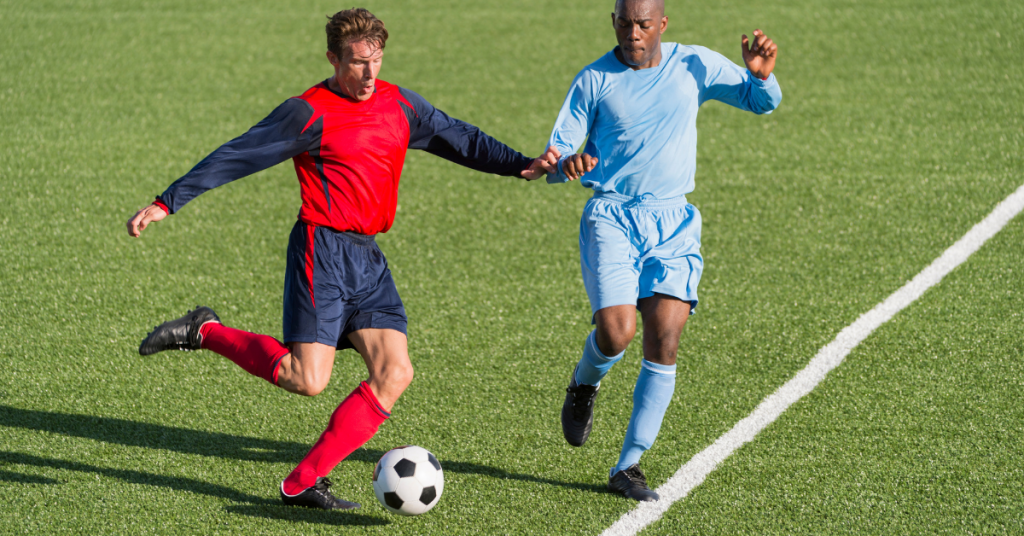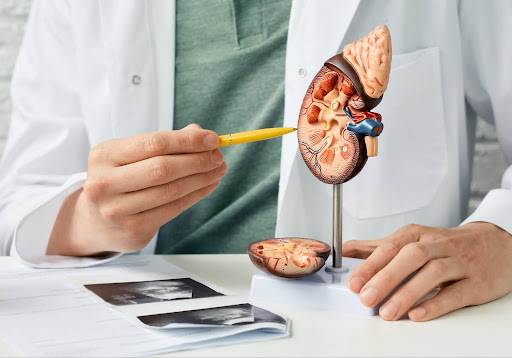
With summer right around the corner, team and summer sports might be starting back up in your area. With this, you must ensure you and your children are as safe as possible while playing. One thing that you need to do is to make sure you have the appropriate protection to prevent testicular trauma. Injuries to the testicles occur during sports when someone is kicked, falls, or gets hit by another person or object.
Preventing Testicular Trauma
Because injuries have the possibility of causing permanent damage, you should know a bit about the subject so you can take steps to make sure whoever is playing the sport has the appropriate protective gear. Here at Alliance Urology, we have put together everything you need to know about testicular trauma and how to prevent this type of injury.
What Is Testicular Trauma?
Testicular trauma occurs when a testicle is hurt or injured by force. These injuries can harm the scrotum and testicles and cause damage. Because the testicles are in the scrotum outside of the body, they do not have the natural protection of bones or muscles.
What Are The Symptoms?
The main symptom of testicular trauma is severe pain in or around the testicles. Other signs of trauma that should prompt you to go to the doctor include bruising, swelling, trouble urinating, blood in the urine, an injury that penetrates the scrotum, or fever after the injury.
What Are The Types Of Testicular Injury?
There are many different types of testicular injuries. Knowing the difference between some of the most common types of trauma can help self-assess in order to receive appropriate care.
- Hematoma: A blood clot that causes bruising on the surface of the testicles. Can also occur within the testicles.
- Scrotal or testicular contusion: An injury to the blood vessels in the scrotum or testicle that causes internal bleeding
- Testicular rupture: One or both of the testicles is smashed into the pubic bone, causing them to leak blood or other contents into the scrotum.
- Dislocation: The testicle is pushed out of the scrotum
- Degloving: The scrotum is torn away from the testicles
- Epididymitis: The tube that holds the sperm after leaving the testicles (epididymis) becomes inflamed or infected.
- Testicular torsion: One or both of the testicles gets twisted inside the scrotum. This cuts off blood flow and requires immediate treatment.
What Are The Diagnosis & Treatment for Testicular Trauma?
A urologist can examine a patient who suspects they have a testicular injury to diagnose the problem and how severe it is. Sometimes imaging tests may be required to confirm or make a diagnosis. If the doctor confirms the diagnosis of the testicular injury, surgery is often required to repair the scrotum or testicle(s).
Some testicular trauma, such as epididymitis, can be treated without surgery. The urologist can recommend anti-inflammatory medications, prescribe antibiotics for an infection, and advise you on wearing a support garment.
How Can I Prevent Testicular Injuries?
While a doctor, like a urologist, can treat testicular trauma, it is better to try and prevent it from happening in the first place. To protect your testicles from the above injuries, follow these tips:
- Always wear an athletic cup when playing sports where testicular trauma is a risk. Most protective cups are made out of hard plastic to protect the testicles. Cups should be worn whenever there is a risk of testicular trauma from hitting or kicking, including when participating in sports such as football, soccer, hockey, and karate.
- Make sure your athletic cup fits. If the cup is too big or too small, it will not provide appropriate protection. Make sure when purchasing a cup it is the correct size. There are many size options available.
- An athletic supporter (also known as a jockstrap) can help you avoid testicular injury when doing things like strenuous exercise, heavy lifting, or cycling. An athletic supporter does not have a hard plastic exterior. It is just a cloth pouch that keeps your testicles close to your body to avoid injury.
- Talk to your coaches and doctor about the risks of sports and physical activities. They can give you advice about the gear you need for protection.
Alliance Urology Specialists is home to an expert team of urologists that are committed to providing comprehensive care to adults with urologic disorders and other conditions that may affect sexual health. If you have questions or concerns about a urologic condition, call our office at (336) 274-1114 to make an appointment.

